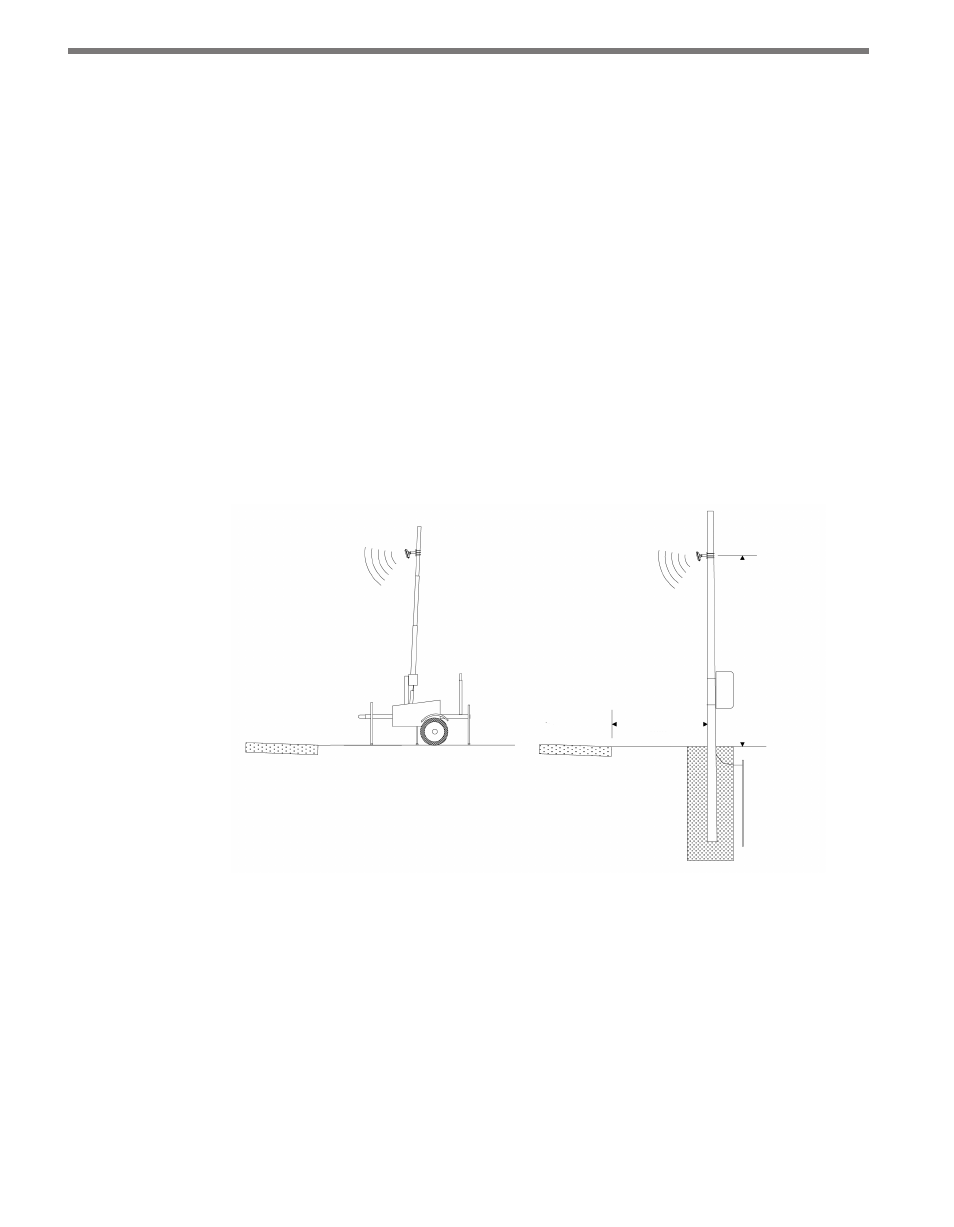Wavetronix SmartSensor 105 (SS-105) - User Guide User Manual
Page 8

INTRODUCTION
• SMARTSENSOR 105 USER GUIDE
7
˽
Line of Sight – The SmartSensor is designed to work accurately in the presence of
barriers, but in general if there is an alternate mounting location that would avoid any
type of structural occlusion, this is preferred. Avoid occlusion by trees, signs, and other
roadside structures.
˽
Neighboring Structures and Parallel Walls – It is also preferred that sensor locations
have a 30-ft. (9.1-m) lateral separation from overhead sign bridges, overpasses, tunnels,
parallel walls and parallel-parked vehicles in order to avoid multiple reflection paths
from a single vehicle.
˽
Mounting Height – The mounting height should be based upon the offset from the
lanes of interest. For each offset, the minimum, maximum and recommended range
of heights is shown in Table 1.1, found in chapter 1. In general, the range of recom-
mended heights is between 9 and 50 ft. (2.7 to 15.2 m).
˽
Mounting Offset – The minimum recommended offset from the edge of the first lane
of interest is 10 ft. (3 m).
˽
Arterial Locations – Sensor sites on arterials or other roadway segments with regu-
lated stop lines should be selected at mid-block positions to increase accuracy by in-
creasing line of sight to stop-and-go vehicles.
Roadway
Roadway
10 ft. min.
9 – 50 ft.
(see
mounting
guidelines)
Figure I.1 – Portable (left) and Permanent (right) Sensor Stations
˽
Freeway Locations – SmartSensor is often used at permanent ATR stations. The
number of stations along a single roadway and the distance between stations should
be selected to achieve adequate levels of statistical confidence. Permanent ATR sta-
tions, which are selected to cover interstate, principal arterial and other national and
state highways, are used to establish seasonal adjustment factors for count data from
temporary collection sites (see Figure I.1).
˽
Cable Lengths – Ensure that you have sufficient homerun and sensor cabling. Cable runs
as long as 600 ft. (182.9 m) using 24 VDC operation and RS-485 communications. For
longer connections, alternate wired and wireless options should be considered.
